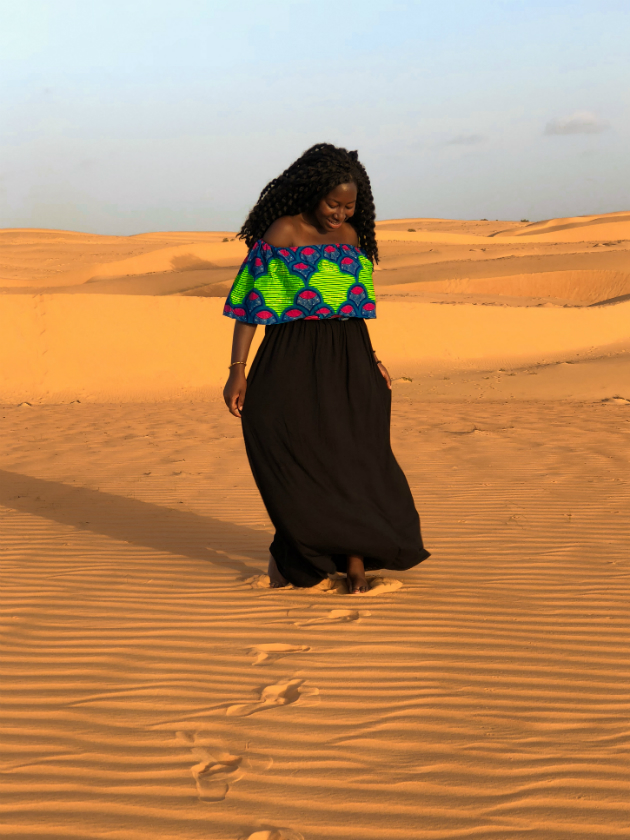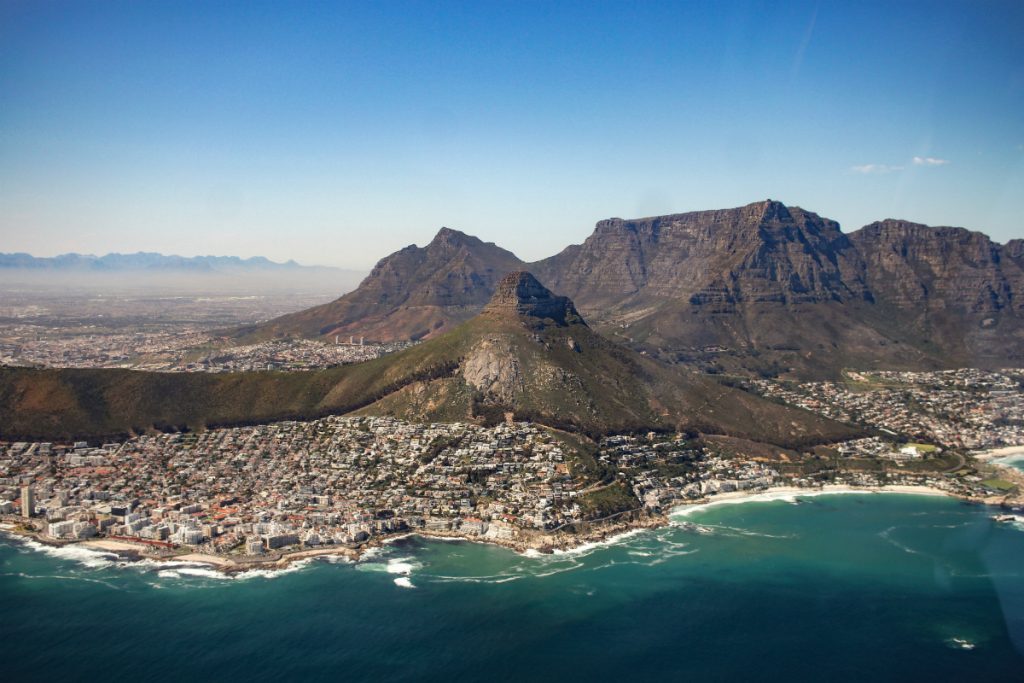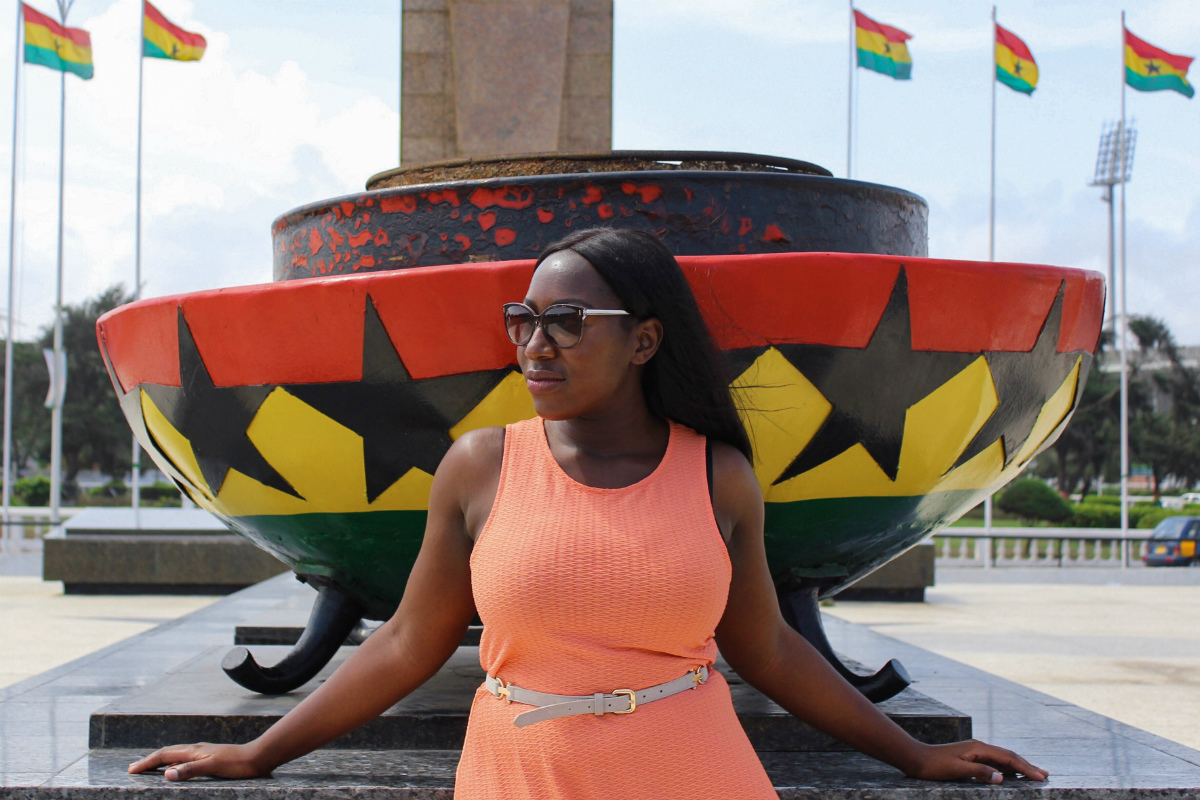With tourism in Africa at an all-time high, African travel expert Vivienne Dovi explains why she recommends a trip to the motherland – and why we should take care with the stories we tell afterwards
There has never been a more popular time for the African diaspora to visit the continent. Often defined by visiting relatives during the Christmas holiday or a celebration, black currency is now being spent in the motherland for tourism purposes. And the contribution is significant: according to the Africa Growth Initiative, spending on tourism and hospitality on the continent is set to reach approximately £211 billion ($262 billion) – an increase of £111 billion ($138 billion) since 2015.
In recent years, black-owned companies have caught onto this phenomenon, with the likes of Tastemakers Africa and Travel Noire curating group trips for the diaspora to experience Africa, as well as major festivals such as Afropunk finding a home in Johannesburg. 2019 has given us a glimpse of what is yet to come in Africa in the upcoming years, especially with Ghana’s Year of Return campaign, inviting Black Brits and African-Americans to come ‘home’ and connect with the country through activities, celebrations and festivals like Afro Nation.
Being witness to this is a brilliant development, considering that in our lifetimes many African countries are long forgotten about unless there is something negative to report. To the West, Africa has been whittled down to a small number of things: poverty, famine and disease, to name a few. This depiction is reflected in how we view tourism too; from orphanage visits to safari excursions, Africans living their normal lives are never at the centre of the conversation.
But now that the diaspora is expanding their horizons, we are able to see the depth of Africa through videos, social media and word of mouth. From running down sand dunes in Senegal to snorkelling in Mozambique, our perception of Africa is broadening. So why are people deciding to travel to the motherland instead of other continents?

Nicolas Negoce, Broadcast Journalist for BBC Africa, chimed in: ‘We can now see that we can contribute to the development of Africa. Over the years, people have always believed that Africa is poor and rife with crisis, but now we see lots of entrepreneurs, fashion personalities, sports and a new generation of politics emerging. Of course there will still be negative things in 2019, but as things are getting better, people in the diaspora will want to see how they can contribute to the rise of the continent.’
Due to historical links severed through slavery, African-Americans are often looking to reconnect with the motherland too, with some even relocating permanently. Jakiya Brown, founder of The Traveling Fro and now living in Senegal, explains this further:
‘Senegal was my first stop in West Africa and I’ve been here ever since,’ she tells me. ‘I grew tired of the way the Western world operates, and I had not yet seen black people represented positively in the US or in the media.
‘Coming to the continent and seeing other black people thrive… I felt like I needed that in my life. In my opinion, it just took us a little longer to find our roots and now that we have, we are going in droves because we are already spending our disposable income on travel. The idea of travelling in Africa has become more realistic.’
‘From orphanage visits to safari excursions, Africans living their normal lives are never at the centre of the conversation’
The popularity of African travel is only set to rise which means that we, as people of the diaspora, have a great duty to help shape Africa’s narrative in the Western world. But given that many of us love to capture content while travelling, it means that we have a responsibility to represent the continent in an accurate way.
As the Founder of Melanin Travel, a platform that curates events and content for the African diaspora, my passion for exploring and providing advice through content runs deep. Curiosity – and travelling back with my father – naturally brought me back to Ghana and Togo. However, while I was there, I grew aware of the potential issues that could arise from not being responsible with my platform: if I take a picture with a child, how would this look on social media? If I feel scared, what are the reasons for that, and what are the consequences of me voicing this opinion about the country to others? When I show content on social media, am I placing myself as the subject of the experience and not highlighting the beauty of the country?
What I’ve noticed very quickly is no matter how hard we try, we are prone to inadvertently continue the very stereotypes we’ve grown to despise. We’ve consumed certain content for so long that we too run the risk of having a Western saviour complex when investing into Africa. Our dual identity has often offered us privilege to actually shape the narrative and be heard over locals, but this should not be the case.
I kept these thoughts in mind on my solo escapades to eSwatini and Mozambique in 2017, where I mainly interacted with locals, discovered their opinions on current affairs and experienced the countries through their eyes. The articles and content I subsequently made were shaped by these conversations; because at the end of it all, what does shaping the narrative of any country do if the people who live there aren’t happy with it? Therefore we have an even greater duty: we must ensure that locals are the centre of the conversation while shaping Africa’s narrative – every single time.
While Africa may benefit economically from our tourism, we need to understand the socio-cultural impact we may have on countries with our actions; we cannot be the centre of the conversation.

This lesson proved to be crucial when I launched my event, Taste the Culture: Senegal Edition, an immersive event designed to bring the food and the culture of the country, to London. After living in Senegal for three months in 2018, I was keen to show my community in London why they should visit too, but the way I executed this was important. Having only lived there short-term, there are certain aspects of the culture that I will not fully understand – so I sought the help of the Senegalese community I bonded with abroad and in the UK to help me create the event. They approved everything: if they weren’t happy with the henna designs, I removed them. If they wanted a certain part of their culture to be amplified, I respected that.
Eulanda, founder of award-winning food and travel company Hey! Dip Your Toes In, similarly raised the issue of writing from a place of entitlement which ultimately leads to the erasure of locals in the conversations we bring to social media. She expanded on this discussion: ‘African voices have been some of the most disparaged in history. If travel affords us the opportunity to connect with local voices, we should amplify these as storytellers, but also as tourists so we can really understand the destinations.’
Ultimately, I encourage you to experience Africa in all its glory and invest your money into local experiences for the betterment of the continent. But remember who the conversation is really about, and consider your role in shaping the narrative. Amplify local voices and allow them to lead the conversation. Travel with an open mind and be willing to immersive wherever possible. Think about the potential consequences of how certain images, videos and content may come across to the Western world and what you are willing to do to change this.
Showing Africa in a positive or negative light shouldn’t be the only concern; we should also want to show a true reflection of African countries that locals feel a part of. Let’s work together to raise the voices of the people who have long been excluded from the discussion.
Vivienne Dovi is the founder of UK-based travel site Melanin Travel – follow her @melanintravel_ and @travellingwithmelanin for more.

































































